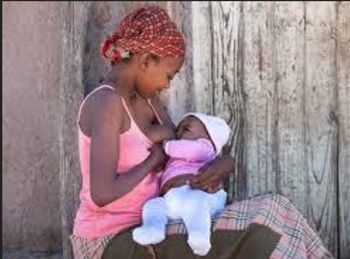Assessment of breastfeeding practice of mothers and the Nutritional status of infants (0–12 months) in Ife North Local Government Area, Osun State, Nigeria
Abstract
Background
According to UNICEF, annually 5.4 million Nigerian children are not exclusively breastfed, worsening the nation's chronic malnutrition issue.
Objective
This study evaluated the breastfeeding knowledge and practices of mothers and the anthropometric status of breastfed infants in Ife North Local Government Area, Osun State, Nigeria.
Methods
In a community-based cross-sectional study, a multi-staged sampling technique was used to recruit 380 women with infants 0–12 months-old from four wards in Ife North LGA. Data on socio-demographic traits of mothers and children, mothers' knowledge and behaviors about breastfeeding, and factors influencing breastfeeding practices were gathered using a semi-structured self-administered questionnaire. The mothers' and infants' anthropometric indices (weight, height, and mid-upper arm circumference (MUAC)) were measured. WHO Anthro was used to analyze and categorize the children’s nutritional status. The chosen significance threshold was p = 0.05.
Results
63.9% of sample mothers were knowledgeable about breastfeeding practices. All the infants had been breastfed and 41.8% of those < 6 months were exclusively breastfeeding on the day before the survey. 67.4% stated that they had started breastfeeding within an hour of delivery. Delays were stated to be due to no breastmilk production (29.5%), insufficient lactation (24.7%), illness (18.7%), and cracked nipples (17.9%). 38.7% of the infants were underweight, 22.9% were stunted, and 7.4% were wasted. MUAC identified 15.3% and 19.5% of children with severe acute and moderate acute malnutrition respectively. Among mothers, 37.6% were overweight and 56.8% had normal BMI.
Conclusions
There is significant malnutrition despite high levels of breastfeeding awareness and behavior. This study's high rates of malnutrition highlight the urgent need for nutrition

Authors retain all copyrights. In making a submission to World Nutrition, they are certifying that all material is theirs except quotations, as indicated, and that they have obtained permission for any photos, tables, or graphics taken from other publications or websites.




